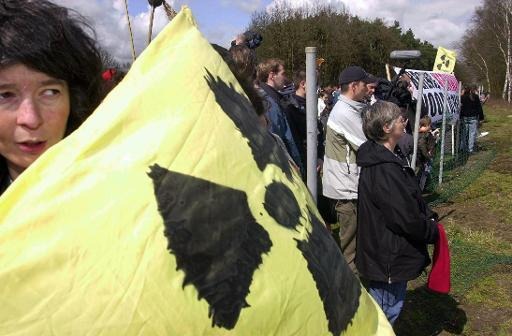It is time for Belgium to decide on the future of U.S. nuclear weapons being kept at the Kleine Brogel military base in Limburg, Political Science Professor at the University of Antwerp, Tom Sauer, said in response to a question on the occasion of the 50th anniversary of the Nuclear Non-Proliferation Treaty. Belgium signed the Treaty and is also a member of the North Atlantic Treaty Organization (NATO), which is a nuclear alliance, Sauer recalled. “These are two contradictory objectives. The Government has to choose and it has chosen for now to side with NATO,” he explained, adding that the country will face increasing pressure if it continues to opt for nuclear weapons.
“Under pressure from the U.S., Belgium was absent last year from the signing of the treaty advocating the banning of nuclear weapons. That amounts, in actual fact, to a violation of the non-proliferation treaty,” Sauer said. “It could take effect next year. In fact, some 50 countries have signed it. This can increase the pressure” on other countries, added the expert, who stressed that most Belgians were against nuclear weapons.
The nuclear-weapons issue is also playing a role in the choice of replacing Belgium’s F-16 fleet. “If we do not buy the U.S. F-35 planes, that would, so to speak, mean the end of U.S. nuclear weapons in our country, because they can be used only with U.S. planes,” Sauer explained, arguing that it was therefore time for the Government to make a decision on the stocking of nuclear weapons in Belgium.
"Moreover, the B61 nuclear arms stocked in our country, like the other American nuclear weapons, will be modernised, and it’s not known whether Belgium has authorized that,” he noted.
The presence of nuclear weapons in Kleine Brogel makes Belgium a more important target in the event of a nuclear conflict, Sauer feels. The United States is the only country that has stationed nuclear weapons outside its borders, which runs counter to the non-proliferation treaty. "And that can create precedents. Imagine Pakistan wanting to do likewise and give nuclear arms to Saudi Arabia, for example. What could prevent it from doing so?” the expert wondered.
According to Sauer, the nuclear threat has increased tremendously in recent years. “For example, it is two minutes to midnight on the Doomsday Clock for the first time since 1953,” he pointed out. “That is due in part to the deterioration of relations between Russia and the West, North Korea’s nuclear programme and the five nuclear powers’ plans to modernize their nuclear weapons arsenal.”
The Brussels Times

